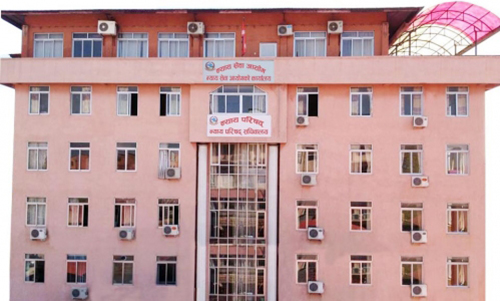Jurists seek change in JC structure to ensure impartiality, fairness
The new constitution has changed the provisions ensuring majority of political forces in the JC
Kathmandu, January 13
Jurists have underlined the need to reform the structure of the Judicial Council to make appointment of judges impartial and to rid the process of political influence.
Former Supreme Court justice Girish Chandra Lal, Senior Advocate Chandra Kanta Gyawali and Advocate Dipendra Jha said laws should be amended to ensure majority of justices in the Judicial Council so as to make appointment and other functions of the judicial body more impartial and effective.
They said the prime minister’s nominee in the JC invariably tilted the majority in favour of political forces, particularly the ruling parties, which adversely affected the recommendation of judges.
As per the provisions, the JC, led by the chief justice has four other members — law minister, one member nominated by the prime minister, one recommended by Nepal Bar Association and one senior most justice of the Supreme Court.
Lal said before the Interim Constitution was promulgated, there used to be three justices — the CJ and two senior SC justices — who ensured majority of judges in the JC, but the new constitution changed the provision ensuring majority of political forces. This is at the root of anomalies in the JC.
“We often hear that judges were recommended by the JC on the basis of political quota. This is wrong. We need to get rid of political influence in the JC,” he said.
Gyawali and Jha said the PM should not have power to nominate any member to the JC and SC justices should have their majority in the JC.
“Independence of judiciary begins from appointment of judges. When judges are not appointed independently and are not free of influence, we cannot expect independence of judiciary,” Gyawali argued.
Jha said India introduced the system of five-member collegium of justices because it believed that if the executive dominated the appointment of judges, then the independence of judiciary could not be fully ensured.
Senior Advocate Purna Man Shakya, however, said there should be representation of at least two former chief justices in the JC to check the conflict of interest in the incumbent chief justice.
“Former chief justices can rid the Judicial Council of anomalies because they know the eligibility required for judgeship and how to check conflict of interest of the serving CJ,” he said, adding that senior Advocate Surendra Kumar Mahto had said that the JC could make judges’ appointment process fair and impartial only when the CJ enforced laws rigorously and acted impartially. Mahto said the JC had violated rules of inclusion in its recent recommendations.
“What can we expect when the chief justice does not abide by the inclusion law,” he said, adding that the principle of inclusion was violated recently also when the JC nominated four High Court judges.
Critics have said that the JC had breached the principle of seniority, favoured political parties and violated the rules of inclusion.
The JC had also faced criticism when it recommended 11 justices for the Supreme Court, 80 judges for high courts and 120 judges for district courts.






